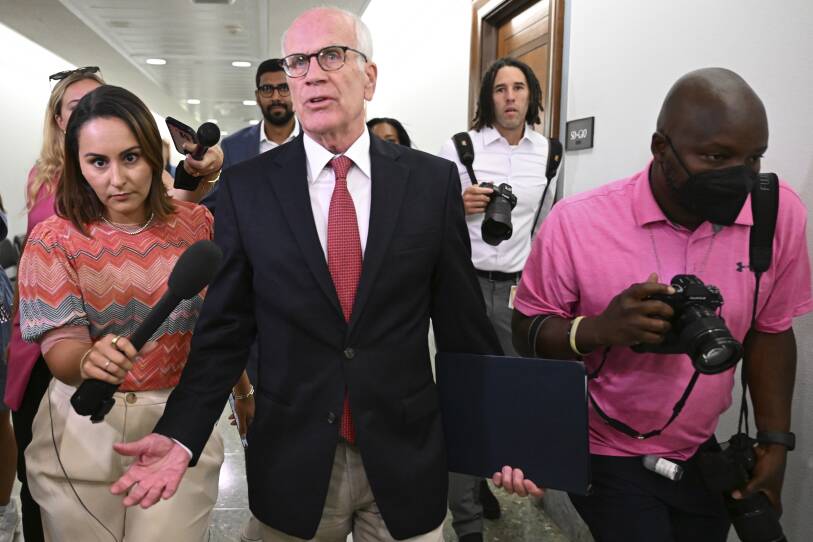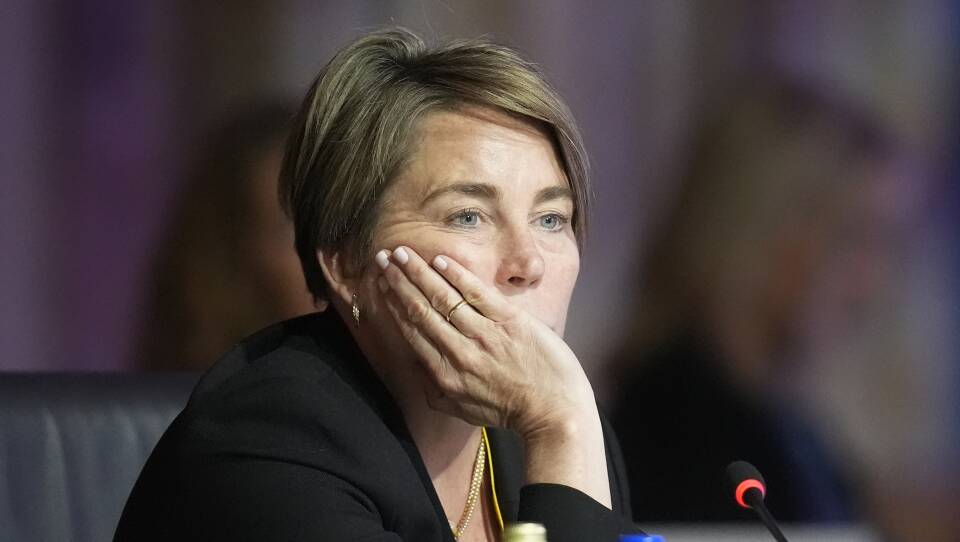Calls for President Joe Biden to end his reelection bid had been mounting ahead of his official announcement on Sunday.
In New England, a region long seen as a blue stronghold, his decision offered a resolution for elected Democrats who had spent the past few weeks pushing for this outcome.
In the hours following Biden’s shaky debate performance on June 27 against former President Donald Trump, several high-profile columnists, followed by entire editorial boards, urged Biden to step down and make way for a Democratic candidate more likely to beat Trump in November.
In an interview with GBH’s Boston Public Radio the day after the debate, state Sen. Jason Lewis, a Democrat from Winchester, Massachusetts, compared Biden’s campaign trajectory to a train careening toward derailment.
“And our choice is to, you know, jump off that train,” said Lewis. “It’s scary. We may break a leg when we jump off, but that’s a lot better than dying in a train crash.”
On July 2, U.S. Rep. Jared Golden, a moderate Democrat from Maine, said in a local newspaper column that the debate “didn’t rattle me as it has others, because the outcome of this election has been clear to me for months: While I don’t plan to vote for him, Donald Trump is going to win. And I’m OK with that.”
Two days later, U.S. Rep. Seth Moulton, who represents northeast Massachusetts, explicitly urged the president to exit the race.
“President Biden has done enormous service to our country, but now is the time for him to follow in one of our founding father, George Washington’s footsteps and step aside to let new leaders rise up and run against Donald Trump,” Moulton said.
On July 5, Massachusetts Gov. Maura Healey, who has been a Biden campaign surrogate, became the first Democratic governor to suggest that Biden weigh exiting the race, saying in a statement that he should “listen to the American people and carefully evaluate” whether to continue running.
On July 10, Vermont Sen. Peter Welch became the first U.S. Senate Democrat to call on Biden to withdraw from the election. Welch said he was worried because “the stakes could not be higher.”

David Gergen, retired Harvard Kennedy School professor Emeritus and former White House adviser to four presidents, told GBH News shortly after the debate he believed that polling numbers would be a key test for Biden and his team as they navigated next steps.
If he were advising Biden in the wake of that debate, Gergen said, he’d urge the president to open up his medical records to the public.
“Be very straightforward with the country. Put the data out there. Don’t flinch. It’s going to be tough,” Gergen said.
Such an act of transparency would at least have shown the public what the risks were, Gergen said.
But the president did the opposite, doubling down and going on the offensive by scheduling a media blitz and multiple campaign stops.
Ultimately, those decisions also included gaffes, ultimately only reinforcing to many of Biden’s doubters that he was not the person to defeat Trump.
Katie Lannan, Mary Blake and Adam Reilly contributed to this report.





